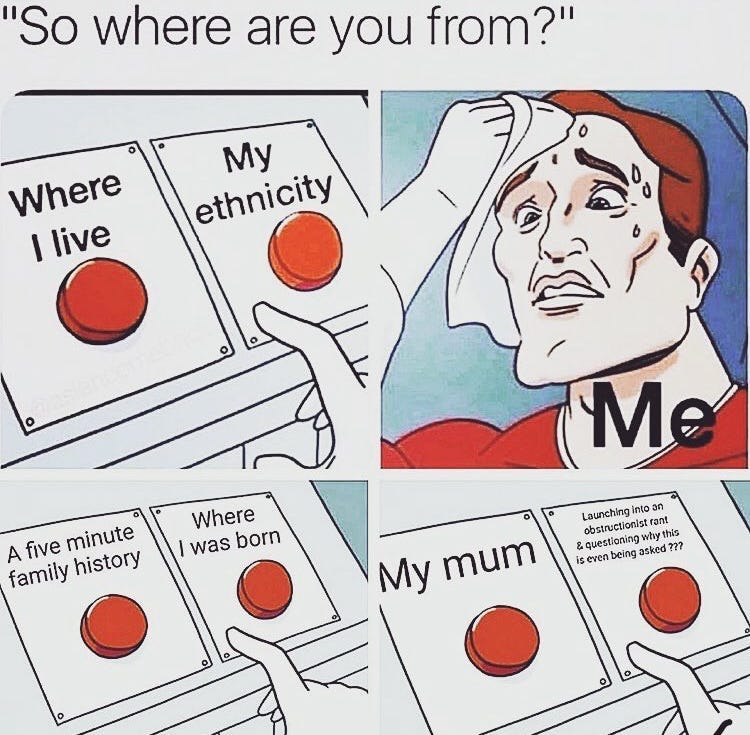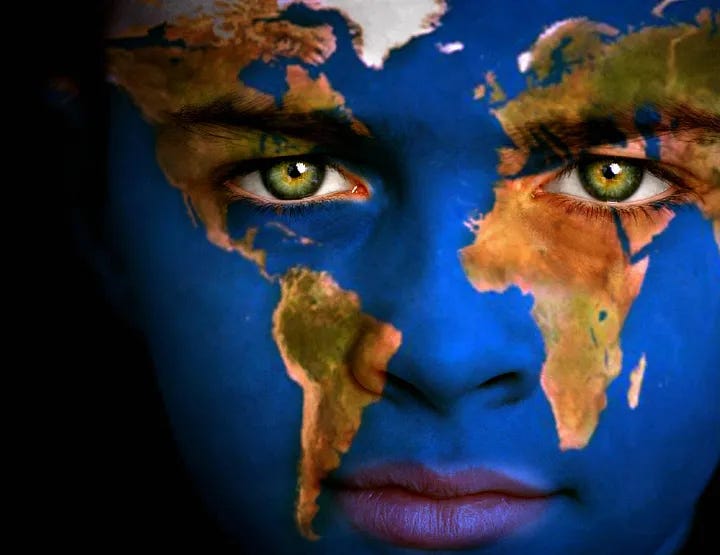The Unfair Advantage
Winning in a Multi-Cultural Future
It was a Friday, and I just got back from middle school. I was psyched to get the weekend rolling, so at dinner my mind was chugging through options of playing basketball or going to the mall to hang out on Saturday afternoon. That’s when my dad casually dropped the most random question ever.
“Son, are you a Korean or Filipino?”
Never ever thought of that in my life. I mean I was Korean, right? But wait, I was born and have lived in the the Philippines my entire life. Hold up.
“Think about it and give me an answer by Sunday night, ok?”
That was perhaps the weirdest weekend of my life. You see, I was at the age where I had to make a call - will I keep a Korean or Filipino passport? Korea at the time didn’t allow dual citizenship. And the answer wasn’t clear to me. Not by a long shot.
So all weekend, while I played basketball and hung out at the mall, I couldn’t escape the burning question. It was just… there, and I couldn’t get rid of it. That is, until Sunday came around, and I was in the bathroom staring at myself in the mirror. I remember uttering these words to myself:
“Dude, you look like a Korean. You are Korean.”
And that was the answer I gave at the dinner table that Sunday.
So what on earth does any of this have to do with some kind of unfair advantage? Well, let me tell you.
You see, cultural diversity is a notion peddled by “coaches” and “consultants” to corporate executives and human resource managers. While there is some truth to the power of diverse points of view, the whole concept got played out, as is usually the case once there is money to be made by selling it.
What they don’t tell you is, while throwing up different perspectives is a good start, the application and processing of them is where the actual value lies - and this is a very difficult task.
Except in one case: when the diverse cultural perspectives are internal to you, yourself. The key difference is that you, through your own experiences and emotions, know how to apply the perspectives intelligently. This is very different than some supervisor, manager, or “coach” attempting to do the same simply because that person does not have the same experiential context that you do. And it is the combination of having the diverse cultural experience and knowing how to apply them that gives one the unfair advantage.
Now you might be tempted to think that not everyone has the privilege of growing up in an environment where they are a third-culture kid. And I understand that sentiment, but here’s the truth: you don’t really have to live for years and decades in another culture to understand the culture.
For example, I lived in Japan for a couple of months. During that time, I was able to understand the culture there, which is nuanced because as you might have guessed, it is quite similar to Korea. Yet, even in just those few months, I was able to discern huge gaps and differences - particularly around restraint and discipline, that have helped me tremendously in numerous occasions, both professional and personal.
Anybody can build a portfolio of cultural perspectives over time.
As machine intelligence continues to rapidly evolve and debate over its impact to humanity permeates the air at cocktail parties, the value of this skill - to be able to apply multi-cultural driven critical thinking and behavioral adjustments - will only continue to grow. And the reason is centered around emotions and feelings, because as I’ve discussed in an earlier post, they play a critical role in contextual understanding and memory recall: necessary components in the application of different cultural perspectives to live situations.
And I don’t have to convince you to believe that machines… don’t have feelings.
➡️ Watch the accompanying YouTube video here:



